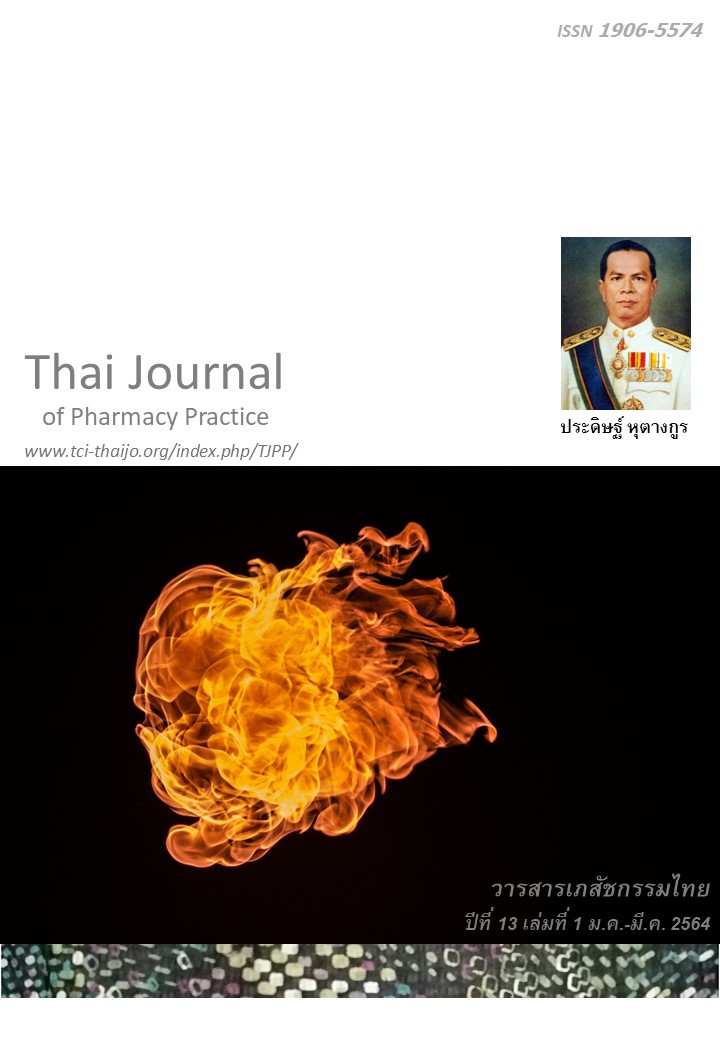นโยบายกัญชา: การวิเคราะห์เปรียบเทียบไทย สหรัฐอเมริกา แคนาดา เยอรมัน และอิสราเอล
Main Article Content
บทคัดย่อ
วัตถุประสงค์: เพื่อวิเคราะห์นโยบายการใช้กัญชาทางการแพทย์ในไทย สหรัฐ แคนาดา เยอรมันและอิสราเอล และสังเคราะห์นโยบายที่เหมาะสมกับประเทศไทย วิธีการ: การวิจัยนี้เป็นการศึกษาเชิงคุณภาพโดยทบทวนเอกสารและการสัมภาษณ์เชิงลึกในผู้มีส่วนได้เสียกับนโยบาย การวิเคราะห์ข้อมูลใช้การวิเคราะห์เชิงเนื้อหาตามกรอบแนวคิดวิเคราะห์ policy triangle model หลังจากนั้น ผู้วิจัยพัฒนาและสรุปข้อเสนอแนะเชิงนโยบายโดยแลกเปลี่ยนกับผู้เชี่ยวชาญ ผลการวิจัย: ระบบการสั่งจ่ายยากัญชาทางการแพทย์คล้ายคลึงกันในทุกประเทศ คือ สั่งจ่ายผ่านแพทย์ มีระบบการลงทะเบียนผู้ป่วยกับหน่วยงานของรัฐ ซึ่งมักเป็นหน่วยงานกลาง เรียกว่า “Cannabis Agency” ภายใต้กระทรวงสาธารณสุข ประเทศอิสราเอล แคนาดา เยอรมัน และอีกกว่าร้อยละ 50 ของรัฐในสหรัฐ อนุญาตให้ใช้กัญชาแบบสมุนไพร ทั้งหมดอนุญาตให้ใช้สารสกัด cannabinoids ได้ และจำกัดข้อบ่งใช้ในบางประเทศ ผลการศึกษาและความเห็นของผู้เชี่ยวชาญสอดคล้องในทางเดียวกัน คือ เห็นด้วยในการนำกัญชามาใช้ทางการแพทย์และควรกำหนดรูปแบบให้เหมาะสมกับบริบท สำหรับประเทศไทยควรเปิดกว้างให้มีการใช้โดยผู้ให้บริการหรือการรักษาตนเอง โดยวางระบบต่าง ๆ ให้ครอบคลุมตั้งแต่ผลิต ปลูก แจกจ่าย ใช้ รวมถึงควบคุมโฆษณากำกับให้ครบถ้วน ต้องมีระบบป้องกันการผูกขาดสิทธิบัตร และป้องกันการใช้ที่ไม่ถูกต้อง สรุป: ข้อเสนอแนะจากงานวิจัย คือ 1. รัฐบาลควรจัดตั้งหน่วยงานกัญชากลาง โดยให้ครอบคลุมทั้งระบบ ตลอดห่วงโซ่อุปาทาน ตั้งแต่ปลูก แปรรูป ขนส่ง จำหน่าย และการใช้ 2. กระทรวงสาธารณสุขควรมีระบบการรักษาด้วยกัญชาทางการแพทย์ให้เหมาะสมกับบริบทของไทย มีการอนุญาตให้ใช้กัญชาในรูปแบบสมุนไพรและสารสกัด มีระบบสั่งจ่ายยาทั้งแพทย์แผนปัจจุบันและแผนไทย โดยควบคุมการนำไปใช้ในทางที่ผิด ป้องกันการผูกขาด และจัดให้มีระบบสิทธิบัตรที่เหมาะสม และ 3. ควรให้ผู้ป่วยมีสิทธิในการรักษาโรคเพื่อการเข้าถึงยา “กัญชา” พืชสมุนไพรท้องถิ่น อันเป็นสิทธิพื้นฐานของผู้ป่วย เพื่อช่วยลดการนำเข้ายา และประเทศสามารถพึ่งตนเองได้อย่างแท้จริง
Article Details
ผลการวิจัยและความคิดเห็นที่ปรากฏในบทความถือเป็นความคิดเห็นและอยู่ในความรับผิดชอบของผู้นิพนธ์ มิใช่ความเห็นหรือความรับผิดชอบของกองบรรณาธิการ หรือคณะเภสัชศาสตร์ มหาวิทยาลัยสงขลานครินทร์ ทั้งนี้ไม่รวมความผิดพลาดอันเกิดจากการพิมพ์ บทความที่ได้รับการเผยแพร่โดยวารสารเภสัชกรรมไทยถือเป็นสิทธิ์ของวารสารฯ
เอกสารอ้างอิง
Taupachit W, Kedsomboon N. Medicinal use of cannabis. Isan Journal Pharmaceutical Science. 2017; 13Suppl: S228-40
Kanato M, Leutiyakun P, Rittimontri S. Policy and management of marijuana problems. Case studies in England and the United States. Bangkok: Work Plan for Substance Abuse in Academic Affairs; 2016.
Abuhasira R, Shbiro L, Landschaft Y. Medical use of cannabis and cannabinoids containing products – Regulations in Europe and North America. Eur J of Intern Med. 2018; 49: 2-6.
Kiatying-Angsulee N. Kratom and Cannabis are the country's pharmaceutical security. Ya-Wiphak 2018 ; 36: 3-8.
Rujanathamrong P. Proceedings of management of krathom and marijuana for medicine and health, and social security; 2016 Sep 27; Bangkok, Thailand. Bangkok: publisher unknown; 2016.
Kedsomboon P. Cannabis and kratom research in cancer treatment. Ya-Wiphak 2018; 36: 13-5.
Zarhin D, Negev M, Vulfsons S, Sharon R. Rhetorical and regulatory boundary-work: The case of medical cannabis policy-making in Israel. Soc Sci Med. 2018; 217:1-9.
Rodcharoen N, editors. Proceedings of medical marijuana conference (medical cannabis) and the law: from drugs to medicines; 2018 Oct 18-19; Bangkok, Thailand. Bangkok: Faculty of Law, Chulalongkorn University; 2018.
Health Europa. Legalising medical cannabis– a German perspective [online]. 2018 [cited Dec 9, 2018]. Available from: www.healtheuropa.eu/legalis ing-medical-cannabis-german-perspective/85372/
The Local.de. Seven things to know about weed in Germany [online]. 2018 [cited Dec 9, 2018]. Available from: www.thelocal.de/20180216/five-thin gs-to-know-about-weed-in-germany-420-marijuana
Rujanathamrong P. Thai law on kratom and medical cannabis. Ya-Wiphak 2018; 36: 19-22
Limsathit P. How is the new drug law contributing to addictive plant research? Ya-Wiphak 2018; 36: 23-25.
Sarnrangsit Online. Introducing Dr. Worawan Sait ham, a researcher and product developer. "Oral spray formulations from cannabis extracts" [online]. 2018 [cited Dec 9, 2018]. Available from www2 .rsu.ac.th/sarnrangsit-online- detail/Cannabis05042 018.
Sawangkarn S. Proceedings of NIA unlocks mariju- ana as a medicine; 2018 Oct 30; Bangkok, Thai land. Bangkok: publisher unknown; 2018.
Prachachart.net. The Assembly under the direction of Prayut passed the Budget Act B.E.2563, and proceeded to consider 20 legislations proposed during the rule by the NCPO [online]. 2018 [cited Dec 9, 2018]. Available from: www.prachachat.net/ politics/news-344674.
Landschaft Y, Allao B, Mechoulam R, Afek A. Medical grade cannabis clinical guide. Draft edition 1.1 [online]. 2017 [cited Dec 9, 2018]. Available from: www.xn--4dbcyzi5a.com/en/2018/01/medical- cannabis-official-israeli-clinical-guide/
Health Canada. The cannabis: the facts [online]. 2018 [cited Dec 12, 2018]. Available from: www.ca nada.ca/en/health-canada/news/2018/06/backgrou nder-the-cannabis-act-the-facts.html
Stafford N. Germany considers legalising cannabis for medical use. BMJ. 2015; 351: h5952. doi: 10.11 36/bmj.h5952.
Labiotech.eu. Medical cannabis–new developments in Germany, the EU and Canada [online]. 2018 [cited Dec 9, 2018]. Available from: labiotech.eu/sp onsored/medical-cannabis-new-developments-dent ons/
Aguilar S, Gutiérrez V, Sánchez L, Nougier M. Medicinal cannabis policies and practices around the world [online]. 2018 [cited Dec 9, 2018]. Available from: ttp://fileserver.idpc.net/library/Medicinal%20canna bis%20briefing_ENG_FINAL.PDF.


